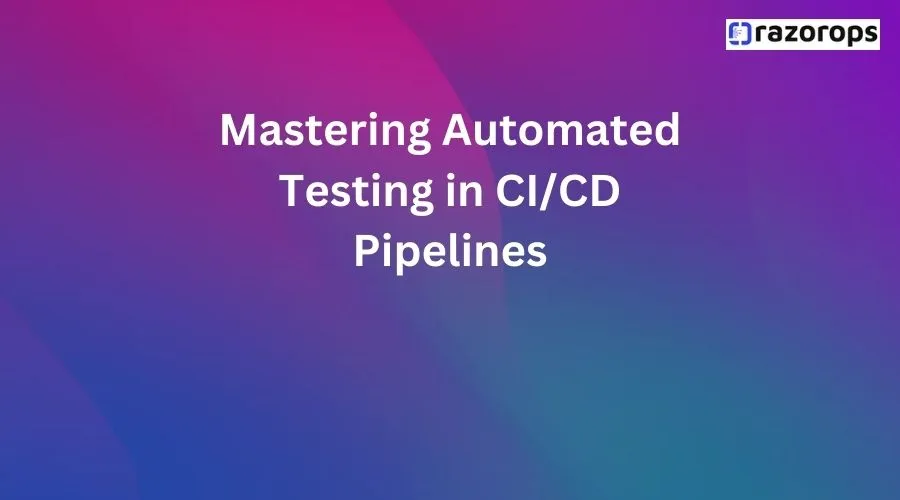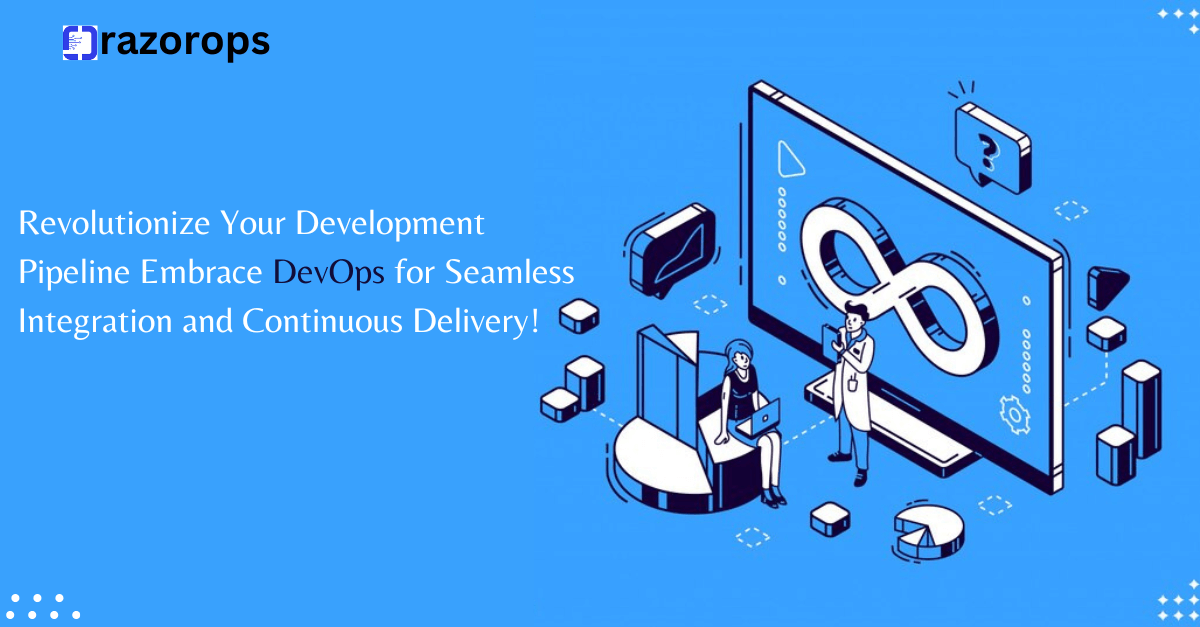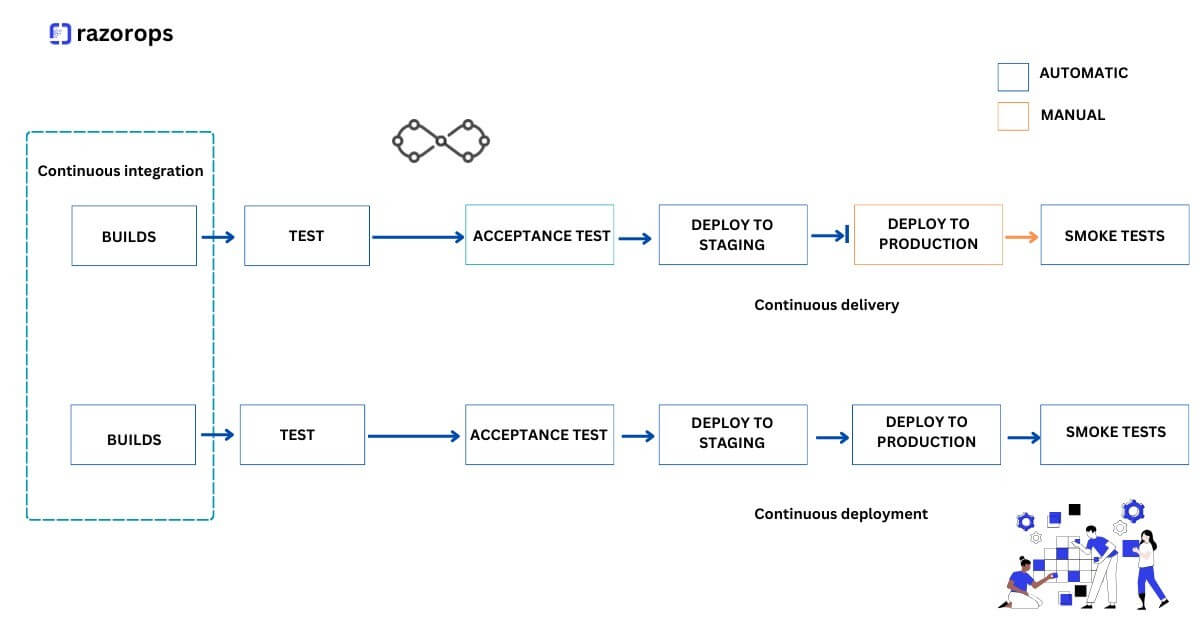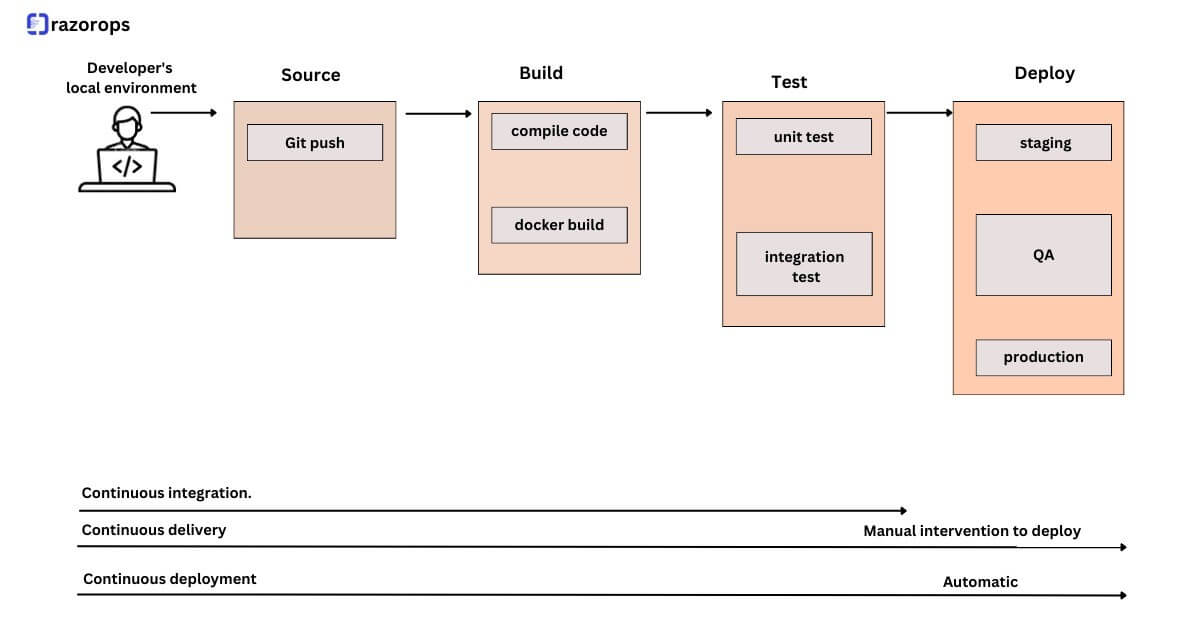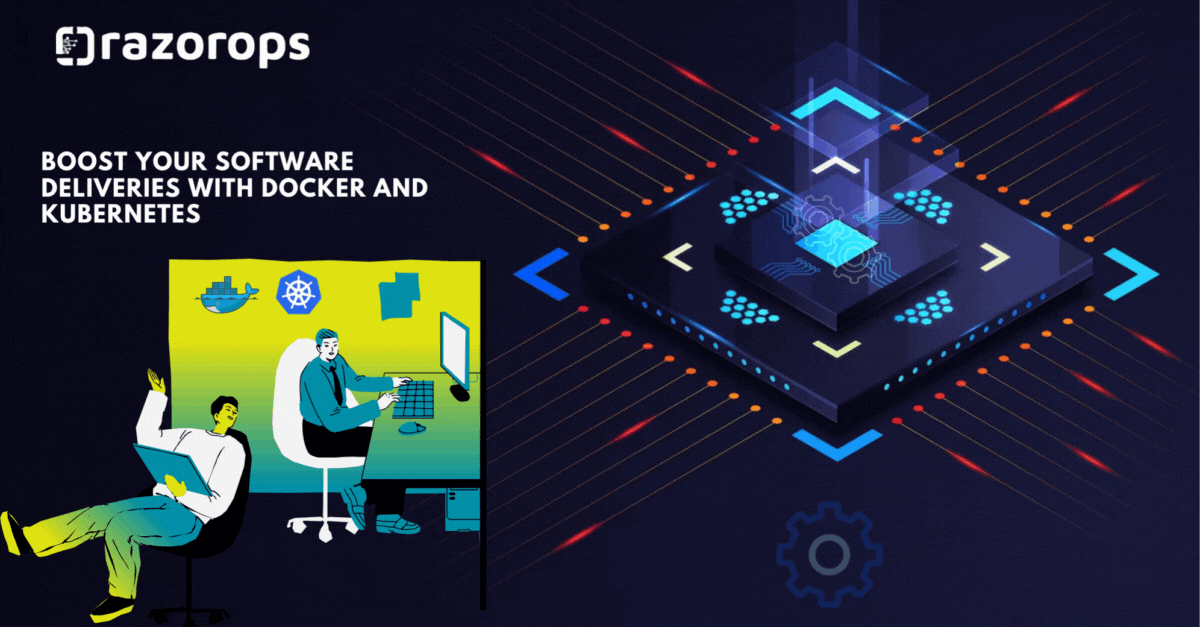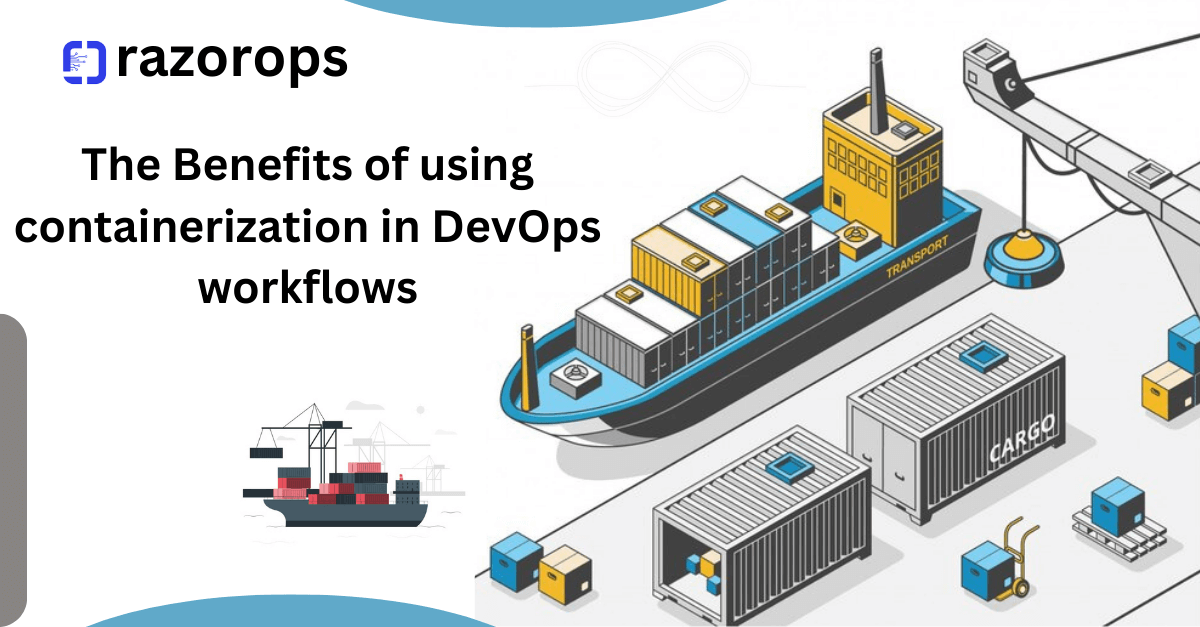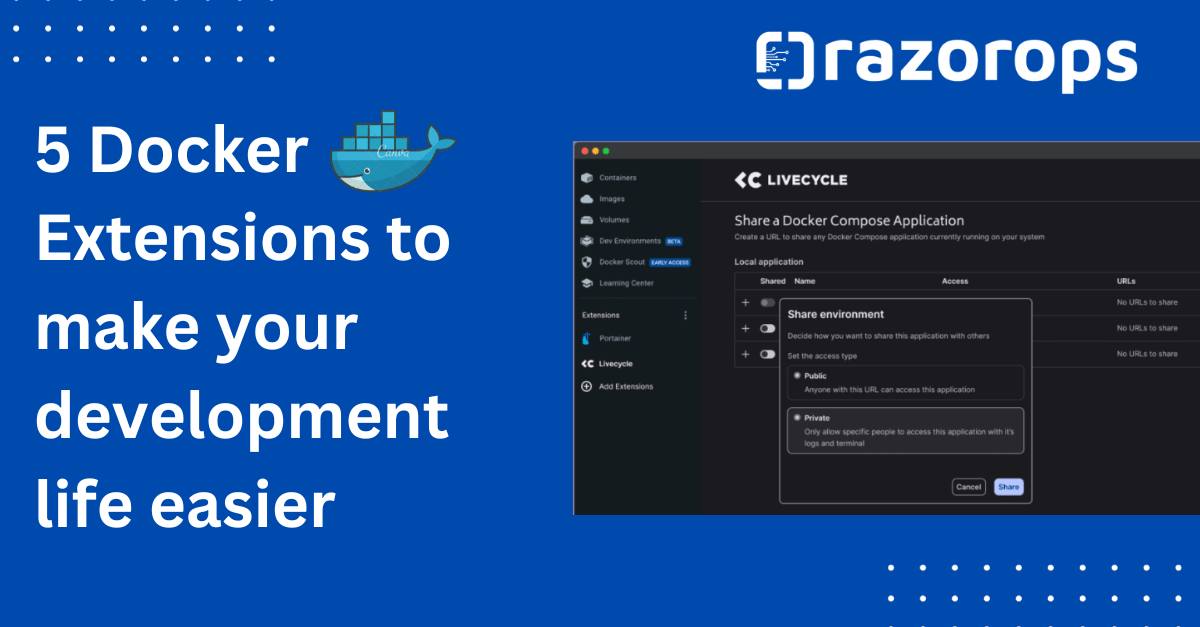The Role of Containers and Kubernetes in DevOps Transformation
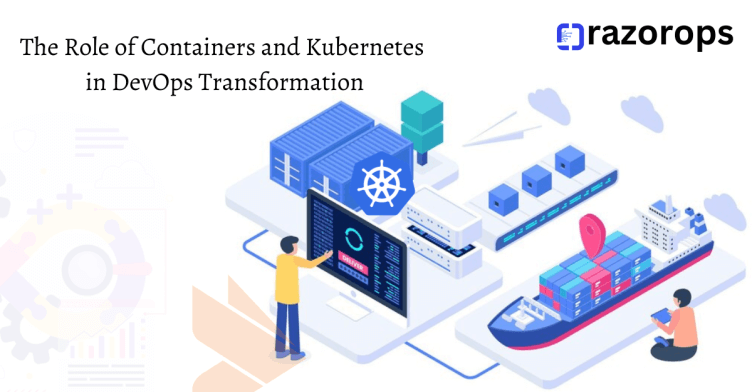
Containers and Kubernetes has become the cornerstone of modern DevOps practices. As organizations strive for agility, scalability, and seamless collaboration between development and operations teams, the adoption of Containers and Kubernetes has emerged as a transformative force. This blog explores the pivotal role these technologies play in the DevOps journey, unlocking new possibilities and efficiencies for software delivery.
Understanding Containers
Conceptual Overview: Delve into what containers are, their encapsulation of applications and dependencies, and their portability across various environments.
Benefits in DevOps: Explore how containers aid in consistency, scalability, and isolation, fostering a DevOps culture of agility and efficiency.
Real-world Use Cases: Highlight examples of companies leveraging containers to accelerate software delivery, enhance resource utilization, and achieve better reproducibility.
Unveiling Kubernetes
Introduction to Kubernetes: Explain the role of Kubernetes as an orchestrator, automating deployment, scaling, and management of containerized applications.
Scalability and Resilience: Discuss how Kubernetes empowers DevOps teams by enabling auto-scaling, fault tolerance, and seamless updates, ensuring robust, always-available applications.
Case Studies: Showcase instances where Kubernetes has revolutionized deployment pipelines, optimizing resource utilization and minimizing downtime.
Intersection of Containers, Kubernetes, and DevOps:
Collaborative Workflow: Illustrate how these technologies amalgamate to foster a collaborative, agile development environment, breaking down silos between development and operations teams.
Continuous Integration/Continuous Deployment (CI/CD): Explore how the integration of Containers and Kubernetes in CI/CD pipelines accelerates the delivery of high-quality software, from code commit to production.
Security and Monitoring: Discuss best practices in securing containerized environments and utilizing Kubernetes-native tools for monitoring and observability, crucial in a DevOps landscape.
Challenges and Future Trends:
Challenges in Adoption: Address common hurdles in adopting Containers and Kubernetes, such as complexity, skill gaps, and managing stateful applications.
Emerging Trends: Explore the evolving landscape, discussing advancements like serverless containers, GitOps, and the role of AI/ML in optimizing Kubernetes operations.
Future Outlook: Provide insights into the trajectory of Containers, Kubernetes, and DevOps, predicting how these technologies will shape the future of software development and deployment.
Containers: The Building Blocks of DevOps Harmony
At the heart of DevOps transformation lies the concept of containerization. Containers encapsulate applications and their dependencies, providing a consistent and portable environment across various stages of the development lifecycle. This standardization enables developers to create, test, and deploy applications with ease, minimizing the dreaded “it works on my machine” dilemma. Containers ensure that applications run consistently regardless of the environment, fostering collaboration and speeding up the development cycle.
Kubernetes: Orchestrating the Symphony of DevOps
While Containers bring order to application packaging, Kubernetes steps in as the conductor orchestrating the deployment and management of these containers at scale. Kubernetes automates the deployment, scaling, and operation of application containers, offering a resilient and fault-tolerant infrastructure. Its declarative approach allows developers to define the desired state of their applications, while Kubernetes takes care of the underlying complexities, ensuring seamless scaling and efficient resource utilization.
Efficiency and Scalability: DevOps’ Dynamic Duo
The marriage of Containers and Kubernetes empowers organizations to scale their applications effortlessly. With Kubernetes’ ability to dynamically allocate resources based on demand, coupled with the lightweight nature of Containers, DevOps teams can respond to varying workloads swiftly. This scalability not only enhances performance but also optimizes infrastructure costs, aligning technology with business objectives.
Continuous Integration and Continuous Deployment (CI/CD): The DevOps Accelerators
Containers and Kubernetes form the backbone of CI/CD pipelines, enabling the automation of testing, integration, and deployment processes. DevOps teams can implement a streamlined workflow where changes are automatically validated, tested, and deployed, fostering a culture of continuous improvement. This accelerates time-to-market, reduces manual errors, and enhances overall software quality.
Microservices Architecture: Embracing Flexibility
DevOps thrives on flexibility, and Containers, in conjunction with Kubernetes, facilitate the adoption of microservices architecture. Breaking down monolithic applications into smaller, independent services allows for better maintainability, agility, and fault isolation. Kubernetes’ service discovery and load balancing features further enhance the management of microservices, supporting a modular and evolutionary approach to development.
Security in the DevOps Pipeline: A Unified Front
Security is a non-negotiable aspect of any DevOps initiative. Containers and Kubernetes provide robust security features, ensuring the integrity of applications throughout their lifecycle. From image scanning and access controls to network policies and runtime security, the DevOps pipeline becomes a fortress, safeguarding against vulnerabilities and unauthorized access. Follow RazorOps Linkedin Page Razorops, Inc.


